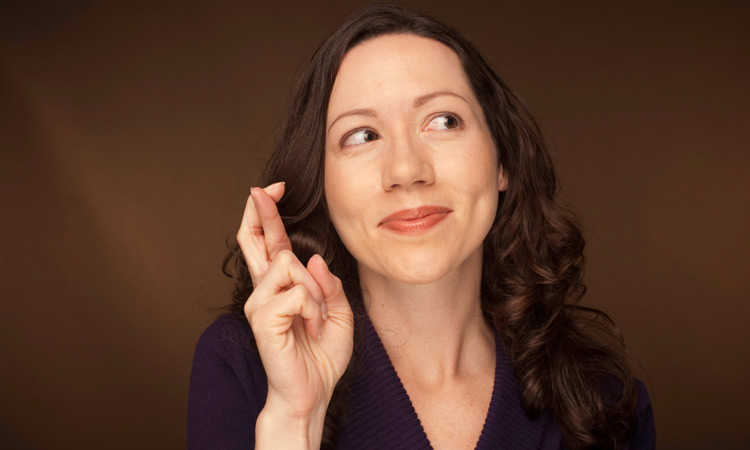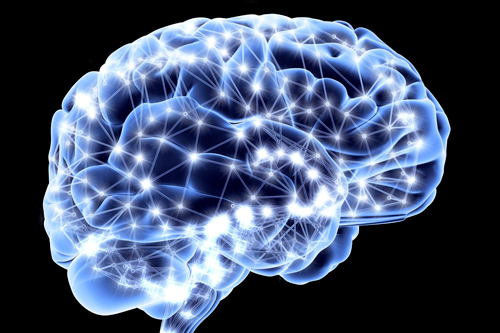 We cross our fingers as the ball tumbles around the roulette wheel. We alter our route to make sure a black cat doesn’t walk in front of us. This type of behavior may be irrational, but it’s quite common. According to psychology professor Stuart Vyse, author of Believing in Magic: The Psychology of Superstition more than 50% of Americans believe in some kind of superstition.
We cross our fingers as the ball tumbles around the roulette wheel. We alter our route to make sure a black cat doesn’t walk in front of us. This type of behavior may be irrational, but it’s quite common. According to psychology professor Stuart Vyse, author of Believing in Magic: The Psychology of Superstition more than 50% of Americans believe in some kind of superstition.
We can thank evolution for wiring our brains to make us prone to erroneous beliefs. Natural selection favors any behavior that is at least occasionally associated with a favorable outcome, even if the association is coincidental. Imagine primitive man seeing a bush move and hearing a lion growl at the same time. He flees the scene, then looks back from a safe vantage point and sees a lion emerge from the bush. This experience can make him remember both the growl and the moving greenery as signs of danger. So the next time he sees a bush moving, it will activate neural mechanisms in his brain associated with fear and avoidance, whether or not any danger lurks within.
Our brains are continually trying to recognize patterns in the environment to help us understand how to survive and thrive. The more quickly we learn, the greater our chances of survival. But in some cases, we lock into patterns that only appear meaningful. And because it may not seem worth the risk to test the validity of these patterns, bad omens and talismans take up permanent residence in our minds.
A study with children three to five years of age published in Behavioural Processes shows that even young minds develop superstitious behavior quickly. The children were told that tapping on a computer screen would cause a smiley face to appear, but that sometimes many taps would be required. During half of the trials, a butterfly image was shown at random times before the smiley face appeared. The amount of tapping increased dramatically when the butterfly was on the screen, even though this image had no causal connection with the appearance of the smiley face. This tendency to find reasons for events, regardless of genuine evidence, has been observed in infants who are less than five months old.
The adult brain is also highly susceptible to superstition, as made clear by the power of the “jinx” in a study reported in the Journal of Experimental Psychology. Half of a group of college students was asked to say out loud that they wouldn’t be involved in a car accident in the next few months. A subsequent interview found that these students were much more likely to be afraid of having an accident than the students who hadn’t jinxed themselves.
Luckily, there are antidotes to the jinxes found in many cultures. This typically involves pushing something away from the body, such as spitting or throwing salt over one’s shoulder. The importance of pushing away to neutralize a jinx was shown in another part of the college student research I mentioned. Students who had jinxed themselves in that study were then invited to literally knock on wood to break the curse. But only those asked to knock on the top of a table (away from themselves) felt as if they had reversed the jinx; another group knocked up against the bottom of a table (toward themselves) but still felt jinxed. It was as if the jinx possessed energy that had to be redirected away from the person.
Superstition boosts performance
Superstitions may also serve as a form of positive thinking that improves performance. In a game-playing study series conducted by social psychologist Lysann Damisch and her colleagues at the University of Cologne, Germany, 41 student participants were asked to bring a lucky charm. After taking the charms away to photograph them, the researchers didn’t return them to some of the students (claiming there were problems with the camera). Participants who were given back their charms performed much better in a card-matching memory task than did those without them. A questionnaire completed afterward revealed that the students with the charms felt more confident when playing the game.
Perhaps good luck charms lose their power over time. A Gallup Poll showed that people under age 30 are twice as likely to have superstitious beliefs than people 65 and older. Maybe that’s because we become more resigned to our fate over time…or maybe arthritis makes it difficult to cross our aging fingers.
Click here to get inspired by Rose’s easy steps to positively change your mind
Post Disclaimer
This content is for informational purposes only and does not constitute medical advice. Please consult a healthcare professional for any medical concerns.


